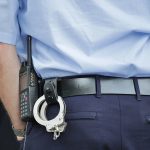Rights When Pulled Over By Police

Many motor vehicle users are unsure about their rights when pulled over by police.
So we’ve answered six of the top questions when it comes to your rights during traffic stops.
When can police pull me over?
Police have broad powers to pull you over in a variety of situations.
They can stop you for a random breath test (RBT) or drug lick test, even if you show no signs of intoxication or impaired driving. Unlike searches, these tests do not require reasonable suspicion and officers can conduct them at their discretion.
Police can also pull you over if they have ‘reasonable suspicion’ that you are committing an offence. The leading case on reasonable suspicion, R v Rondo [2001] NSWCCA 540, explains that this is more than just a possibility but does not need to amount to a reasonable belief. There must be factual basis for the suspicion, police cannot rely on speculation, assumptions, or hearsay. If an officer reasonably suspects that you are carrying an illegal substance or prohibited item, they can stop and search you or your vehicle.
However, this suspicion must exist at the time of the stop, not after the fact.
In practice, this means police have significant authority to stop vehicles, whether for roadside testing or suspect offences.
Do I have to answer police questions?
The only information you must give police during traffic stops is your name and address.
Section 175 of the Road Transport Act 2013 requires you to produce your licence in order to verify those details.
You are not required to answer any other questions during traffic stops, and it is normally best not to answer police questions, or engage in a discussion or argument.
What are the penalties if I don’t pull over?
You must pull over if police signal you to do so.
Failing to pull over and thereby causing a police pursuit is also known as ‘Skye’s law’, and is a very serious offence. Section 51B of the NSW Crimes Act 1900 prescribes a maximum penalty of three years imprisonment and a three year driving disqualification for police pursuits, which can be reduced to 12 months off the road if there are good reasons for the reduction.
Can police rely upon an ‘estimate of speed estimate’ to write a ticket?
You may have read about the controversy surrounding a police officer who gave a truck driver a speeding ticket based upon an ‘estimate of speed’.
To the surprise of many, police are indeed able to rely on their estimates of speed when it comes to handing out tickets.
However, you have the option of fighting this in court; at which time the Magistrate will listen to both sides – the police on the one side, and you and any of your witnesses on the other – before deciding whether police have proven their case beyond reasonable doubt.
If the Magistrate believes that police have established that you were speeding, you will be found guilty; but if you are able to raise a reasonable possibility that you weren’t speeding, the court must find you not guilty and dismiss the fine, together with any demerit points or suspension.
Can I film police if they pull me over?
Yes.
Contrary to what police might tell you, there is no law against filming police in public, including after you have been pulled over and turned off your engine.
Police cannot confiscate phones and cameras, delete footage or require you to delete footage, just because you’re filming them. But be careful not to ‘hinder’ them from doing their duty by putting the camera right in their faces, as this can lead to charges.
If police attempt to forcibly take your phone or recording device just because you’re filming them, they can potentially face charges or civil proceedings for assault or trespass to the person.
If they do take your device, remain calm! Deleted footage can always be recovered by sending your phone or camera to a digital recovery expert after you get it back – provided that police don’t ‘lose’ or physically destroy the device.
Police harassment: who can I complain to?
Since police are sworn to follow and maintain the law, knowing who to turn to if they assault or otherwise act illegally towards you can be confusing.
If you are the victim of police misconduct, you can report the incident to the Local Area Commander as a first step.
If this goes nowhere, you are able to make a complaint to the NSW Ombudsman. However, the Ombudsman is inundated with thousands of complaints against police every year and is not sufficiently resourced to investigate all of them. Even if the Ombudsman investigates the complaint and finds that police acted illegally, he has no direct power to discipline police officers, let alone press criminal charges or force them to pay compensation.
Ultimately, seeing a civil lawyer to discuss the possibility of commencing legal proceedings against the NSW Police Force may be your only viable option – but that course can be very expensive and take a long time to reach fruition. And there is always the risk that if you are not successful, an order for legal costs can be made against you – as we saw in the case of a young man who took police to court for shooting him after they mistook him for an offender.
Sadly, many people who are subjected to police brutality are disappointed by the outcome of internal complaints and responses by the Ombudsman (or lack thereof), and simply cannot afford to pay lawyers to take the NSW Police Force to court.
Going to court for a traffic offence?
If you are going to court for a traffic offence, call or email Sydney Criminal Lawyers anytime to arrange a free first consultation with an experienced, specialist traffic lawyer who will accurately advise you of your options, the best way forward, and fight for the optimal outcome in your specific situation.






